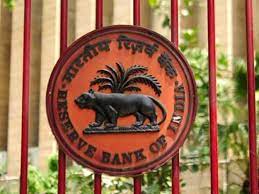RBI MPC Maintains Repo Rate at 6.5%; Projections for FY24 GDP Growth and Inflation Remain the Same
The repo rate will remain at 6.5 percent, as agreed by the monetary policy committee of the RBI on Friday. The central bank has delayed the main interest rates four times in a row. The RBI has maintained its FY24 GDP prediction of 6.5% and its FY23–2023–2024 inflation projection of 5.4%.
In his presentation of the fourth bimonthly monetary policy of FY24, RBI Governor Shaktikanta Das said that “our monetary policy remains aligned to focus on 4 percent inflation target.”
Additionally, the RBI MPC held the SDF at 6.25 percent and the MSF and Bank Rates at 6.75 percent. In the interest rate corridor, the SDF is the lower band and the MSF is the upper band.
Regarding the inflation prognosis, the RBI governor said that because of a decline in kharif sowing, decreased reservoir levels, and unstable global food & energy prices, the inflation picture is generally clouded by uncertainty.
He said that, in contrast to global trends, local eco activity demonstrates resilience due to robust domestic demand, suggesting that global headline inflation may continue high for longer than anticipated.
Regarding the economic scenario, Das said that India is positioned to replace China as the next global development engine. The outside world is still controllable. The dual balance sheet issue has now been transformed into a dual benefit. “However, we must exercise caution. Even in prosperous times, susceptibility and risks might increase.
“Macroeconomic stability and inclusive growth are the essential tenets that guide the development of our nation. The policy mix we have been pursuing in the previous years, which have seen many and unprecedented shocks, has encouraged macroeconomic and financial stability…A decade ago, there was a twin balance sheet stress, but today there is a twin balance sheet benefit, with better balance sheets for both banks and corporations, the expert added.
Expert Opinion
“Given the pulls and pressures on liquidity conditions in the coming months, the RBI did not announce any durable liquidity absorption measures for now (like CRR hike), in line with our expectations,” said Abheek Barua, chief economist and executive vice-president of HDFC Bank. However, they made it clear that, if necessary, they are open to the idea of managing liquidity situations via OMO sales. This shows that the RBI prefers tighter liquidity conditions going ahead, which is motivated by worries about financial stability as well as inflation threats.
“The RBI’s decision to pause along with maintaining the withdrawal of accommodation stance was in line with expectations,” said Suvodeep Rakshit, senior economist at Kotak Institutional Equities. It’s significant that the RBI has emphasized expressly the need of using OMO sales to adjust liquidity. This will negatively affect the mood of the bond markets. Food inflation worries were brought up as a potential source of higher overall inflation. Given the influence of weather and commodity prices, we think that inflation risks are still on the upside.
He also said that RBI’s policy choices would be influenced by the state of the world’s currencies. The good news is that core inflation is still under control and growth is still robust. We continue to advocate for a long repo rate hold at 6.5% until FY2025, with medium-term liquidity goals of being close to neutral.
“Holding of interest rates at same level in monetary policy is a welcome move and this move will help in sustained recovery in economic growth which country is witnessing,” said Amit Sarin, managing director of Anant Raj Limited. It goes without saying that the judgment will be advantageous to the housing and real estate industries. In the next quarters, it is anticipated that demand for residential properties would continue strong. The cost of borrowing for businesses would also continue to be fair, which would be good for the economy since businesses would have the freedom to make more capital investments.
“The RBI’s decision to maintain the status quo on the interest rate augurs well for the housing sector and the real estate sector as a whole,” said Mohit Jain, managing director of Krisumi Corporation. Over the next months, it is anticipated that the demand for housing, especially mid- and luxury homes, would remain strong over the holiday season. In the foreseeable future, the tendency to purchase pleasant and comfortable living places will only get stronger.







